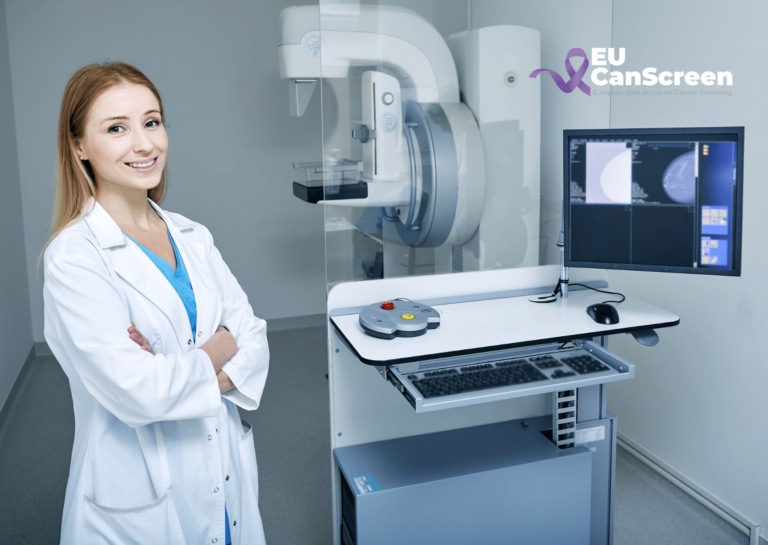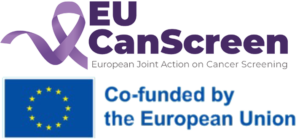European experts evaluate mammography specialist training and plan the establishment of a regional training centre in Latvia

On 8 and 9 May, leading experts in breast cancer screening from Europe are gathering in Riga as part of the EUCanScreen project. The aim is to evaluate the results of a European survey on the training of mammography specialists (radiologists and radiographers), to develop a unified training programme for both new and experienced specialists in breast cancer screening in each member state, to plan the establishment of a regional mammography training centre in Latvia, and to coordinate the next steps for implementing this initiative.
The meeting brings together specialists in breast cancer screening from several countries, including Latvia, Denmark, Italy, Spain, Slovenia, Ukraine, and Cyprus. The experts are jointly evaluating the 2024 European survey on mammography specialist training to identify best practices and gaps in different countries. These findings will help us understand how a unified training approach can improve the quality of mammography screening across Europe. The survey provides information on training programmes, qualification requirements, and further training opportunities for radiologists and radiographers in different countries, as well as quality assurance for breast cancer screening.
Experts are developing a draft training programme for mammography specialists in Latvia, based on the survey data. The programme is expected to include both theoretical knowledge and practical skills (e.g., image interpretation, patient positioning, etc.), as well as the latest technologies – such as artificial intelligence tools. The goal is to create a unified training standard that will help upskill professionals for the early detection of breast cancer.
Special attention will be paid to the establishment of a mammography training centre in Latvia, which would serve as a reference for mammography training in the Baltic region and Europe. The centre is expected to involve both local and international experts and provide regular training courses for radiologists and radiographers. During the meeting, the steps for establishing the centre will be clarified – including the required equipment, staff training, and collaboration with leading screening centres in Europe. The training programme is expected to be piloted in Latvia in the coming years, and the centre will gradually welcome specialists from other countries for knowledge exchanges. It is important to mention that correct patient positioning and image analysis are critical in mammography screening. Highly qualified radiologists and radiographers, trained according to unified standards, ensure the early detection of tumours.
Benefits of a regional mammography training centre
The planned mammography training centre in Latvia will be the first regional training centre of its kind in the Baltics. There are several strategic benefits to its establishment:
- – Improving the qualifications of specialists. The centre will provide regular training for up-skilled specialists to ensure quality breast cancer screening according to European guidelines. In the first years of the project, future Latvian instructors will have the opportunity to train in Denmark and Italy, gaining both teaching and practical experience at mammography centres. By 2028, up to 56 radiologists and 16 radiographers are expected to participate in the training, significantly increasing the overall competence of specialists in Europe.
- – Implementing unified standards. The centre will introduce a unified training programme that aligns with European best practice and guidelines in mammography screening. The initiative will help to reduce differences between countries by providing specialists with the same quality criteria, image assessment protocols and patient positioning standards. As a result, women undergoing mammography screening will be able to rely on the same high quality of examination, regardless of the country.
- – International knowledge and innovation. The centre will act as a knowledge-sharing platform, where local experts will collaborate with experienced international experts. Guest speakers-experts in radiology, medical physics, and epidemiology – will be invited to share their latest findings and research. We will also test the latest technologies, including artificial intelligence solutions for mammography image analysis, which can aid in early detection of suspicious changes. This transfer of innovation will also contribute to the introduction of modern approaches into everyday practice in Latvia.
- – Sustainable development and regional role. The regional training centre is a long-term investment that will continue to operate after the EUCanScreen project ends. It will reinforce Latvia’s role as a regional competence centre for breast cancer screening and encourage closer cooperation with neighbouring countries.
The expert meeting in Riga is a significant step towards achieving the project’s goals. The results are relevant to a wide audience – healthcare professionals who provide cancer screening on a daily basis, project partners and policymakers who plan screening policies, as well as the general public who care about quality healthcare. By improving mammography specialist training and promoting international cooperation, patients will ultimately benefit: early and accurate detection of breast cancer means earlier treatment and higher survival rates. At the same time, medical staff will also benefit, as standardised training will facilitate knowledge exchange and professional development: radiologists and radiographers will have access to modern training tools and support from international mentors.
We expect to take concrete steps to implement the training programme and establish the centre after the Riga meeting. In the coming year, the first course participant selections may be announced, along with the definition of quality criteria for evaluating trained specialists’ knowledge. This project brings positive news to Latvian society – our country is becoming an active participant in Europe-wide health initiatives, and local experts are contributing to improving early cancer detection not only in Latvia but across Europe. The experience gained during the meeting reinforces the belief that ambitious goals can be achieved in collaboration with partners: in the future, breast cancer screening will be of equal high quality and accessibility for every woman, and the professional community will be prepared to face new healthcare challenges with knowledge, competence, and a unified approach.
Subscribe to our newsletter to get news and updates.
Subscribe to our newsletter to get news and updates.

The general objective of EUCanScreen is to assure sustainable implementation of high-quality screening for breast, cervical and colorectal cancers, as well as implementation of the recently recommended screening programs – for lung, prostate and gastric cancers. EUCanScreen will facilitate the reduction of cancer burden and achieving equity across the EU.
This project has received funding from the European Union’s EU4HEALTH Programme under the Grant Agreement no 101162959










